
Above: Transmission tower. Photo by Gudella/DepositPhotos
BitDepth#1465 for July 01, 2024
In a research article released on June 17, Ookla, a global connection speed monitor, offered an updated evaluation of the state of broadband connectivity in the Caribbean.
The company placed Trinidad and Tobago at the top of its rankings for the first quarter of 2024 with a median download speed of 110 Mbps for fixed broadband. TT was followed by Bermuda and the Cayman Islands, both of which logged median speeds higher than 100 megabits per second (Mbps).
The company recently posted median speeds for TT for May 2024 at 122 Mbps.
Ookla’s Q1 2024 rankings placed Antigua and Barbuda (35 Mbps), Sint Maarten (25) and Cuba (2.7) at the bottom of its speed rankings for fixed broadband.
Ookla also measured the performance of fiber based networks, with Digicel+Bermuda taking top spot with 127 Mbps followed by Digicel+TT (114.26) followed by Amplia (TT) (98.23).
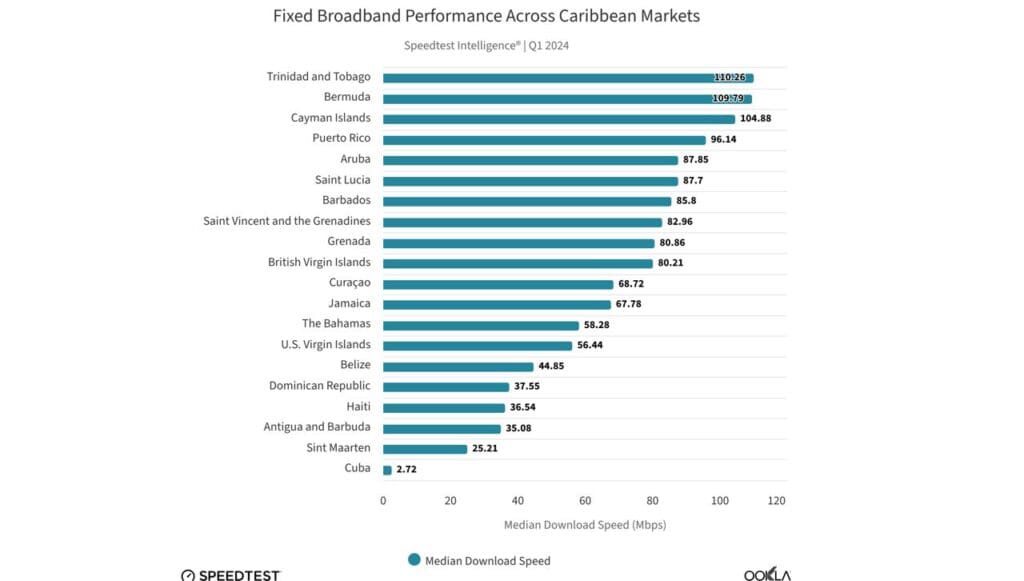
TT didn’t do as well on median upload speeds, dropping to fourth place with a speed of 49 Mbps, almost half that of the Cayman Island’s first place speed of 89 Mbps.
The Ookla report notes the entry of Starlink’s Low Earth Orbit (LEO) satellite internet offering, noting strong performance differentials in speeds for the first placed US Virgin Islands with median download speeds of 108 Mbps compared to that market’s median of 56 Mbps.
In The Bahamas, third placed on its speedtest, Starlink also offered a significant improvement of 96 Mbps compared to that market’s median of 58 Mbps.
Ookla is increasingly turning its speedtest reporting evaluations to 5G, so the predominantly 4G mobile networks of Caribbean countries don’t get the same level of reporting rigour.
As of May 2024, the median mobile download speed for TT is 29 Mbps and the country has dropped four slots in the global rankings to 91 in the world.
It’s not that speeds have become slower locally, but global speeds are improving. Digicel’s mobile speeds led the rankings for mobile broadband median download speeds in 2022 (34 Mbps) and 2023 (33).
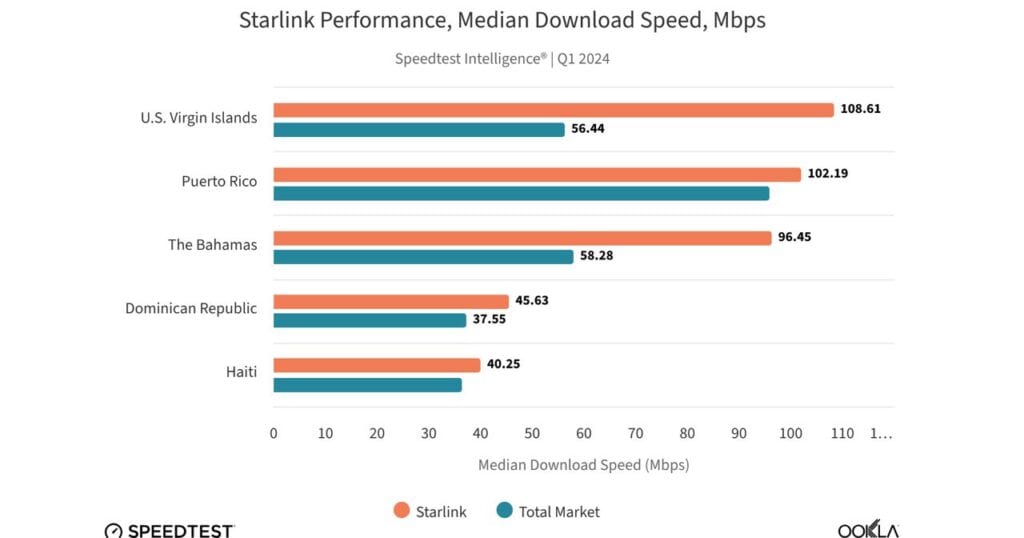
According to the quarterly marketing report by the Telecommunications Authority (TATT), fixed broadband internet penetration stands at 96 out of every 100 households, a year over year percentage increase of almost four per cent.
TATT doesn’t specifically identify the percentage of users with a mobile broadband subscription in its quarterly reports. Six months into 2024, the 2023 report has not been made public.
Narrowband, or older 2G networks, bottomed out at 2.5 per cent of the market in 2022. Given that TSTT announced the sunset of that service in 2018 and Digicel began giving away smartphones to customers that year, it would be surprising to find that the service still continued in 2023.
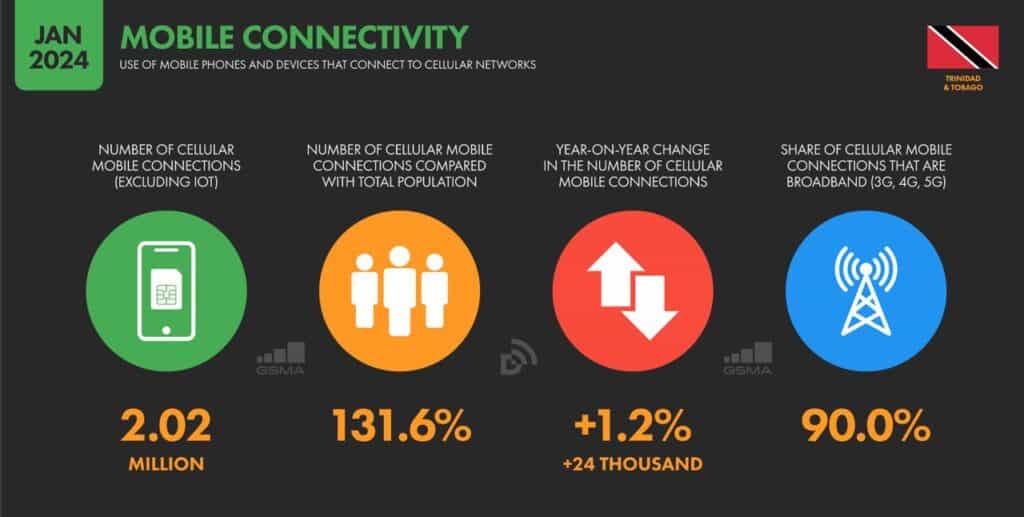
In 2022, mobile internet penetration it had risen to 62.9 per 100 citizens, almost twice the penetration rate of fixed wireless.
Mobile internet subscriptions drop $1.2 billion in the coffers of ISPs compared to $0.98 billion for fixed internet services.
Mobile devices are personal with a one to one use case while fixed or household internet connections are usually shared. That dynamic gives mobile internet 56 per cent of internet connectivity revenue, a number that’s only likely to grow.
Between the reports for Q3 and Q4, TATT switches from identifying Mobile Services Revenues, earnings from customers with both mobile voice and internet services (gross revenues of $507.5 million) to identifying average revenue per user for mobile services ($127 monthly).
It makes for messy comparisons of the market.
In 2022, annual revenue per user was $1,152 and that seems to have risen by the end of 2023 to $1,524 as per the last 2023 Q4 market report.
TATT’s 2022 report pegs per user revenue for mobile internet at close to three times the revenue that ISPs get for fixed internet.
Given that this is the most active telecommunications sector, with 2,017,400 subscribers in a population of 1.5 million, with user penetration of 147 per cent, this sketchiness about evaluating more precisely and consistently what’s happening with mobile broadband in TT is somewhat unusual.
It’s doubly puzzling because the quarterly market reports spend quite some time logging the decline of market sectors like fixed voice, which declined by almost five percent between September 2022 and September 2023. Subscription TV declined by a similar amount over the same period.
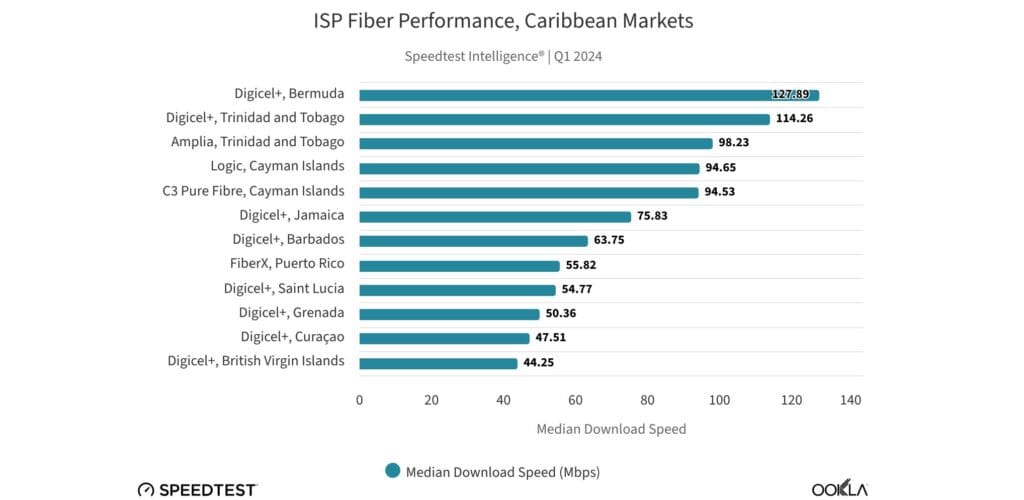
TATT also reports on the curious case of concessionaires who broadcast on cable, of which there are 11 stations airing across 11 cable providers earning revenues that average a total of $1.8 million, an ad budget for telecoms majors.
The lack of more urgent emphasis in reporting on mobile broadband doesn’t seem consonant with the increasingly dominant role it’s playing in TT telecommunications.
It’s entirely possible that this lack of clarity is being forced on TATT by tardy or reluctant reporting by concessionaires, but TATT has the tools, though perhaps not the will, to insist on clearer, more frequent reporting of telecommunications activity in this country, particularly in development critical areas.
It shouldn’t be necessary to rely on external analysis from companies like DataReportal or Statista, which reported in December 2024 that mobile phones contributed 57.3 per cent of the web traffic in TT, close to the global average of 60 per cent of mobile phones which are connected to the internet.
Knowing where TT is and planning where it needs to be in a connected, increasingly mobile-enabled world should be more clearly on the analysis and planning agenda for future digital growth.
And it’s a good idea for ISPs too, because while mobile technologies and services achieved 4.6 per cent growth in GDP globally in 2018, according to the GSMA, the majority of that was driven by mobile operators who accounted for $690 billion in economic value in the global mobile ecosystem.
Knowing what’s actually happening on your networks can drive useful changes.
In a World Bank analysis of poverty reduction in Nigeria between 2010 and 2019, household consumption increased by six per cent after one year of mobile broadband coverage.
The percentage points of households in extreme poverty dropped by four percentage points in the first year and seven points after two. For 2.5 million Nigerians that meant moving out of extreme poverty conditions through opportunities delivered by increased mobile broadband.












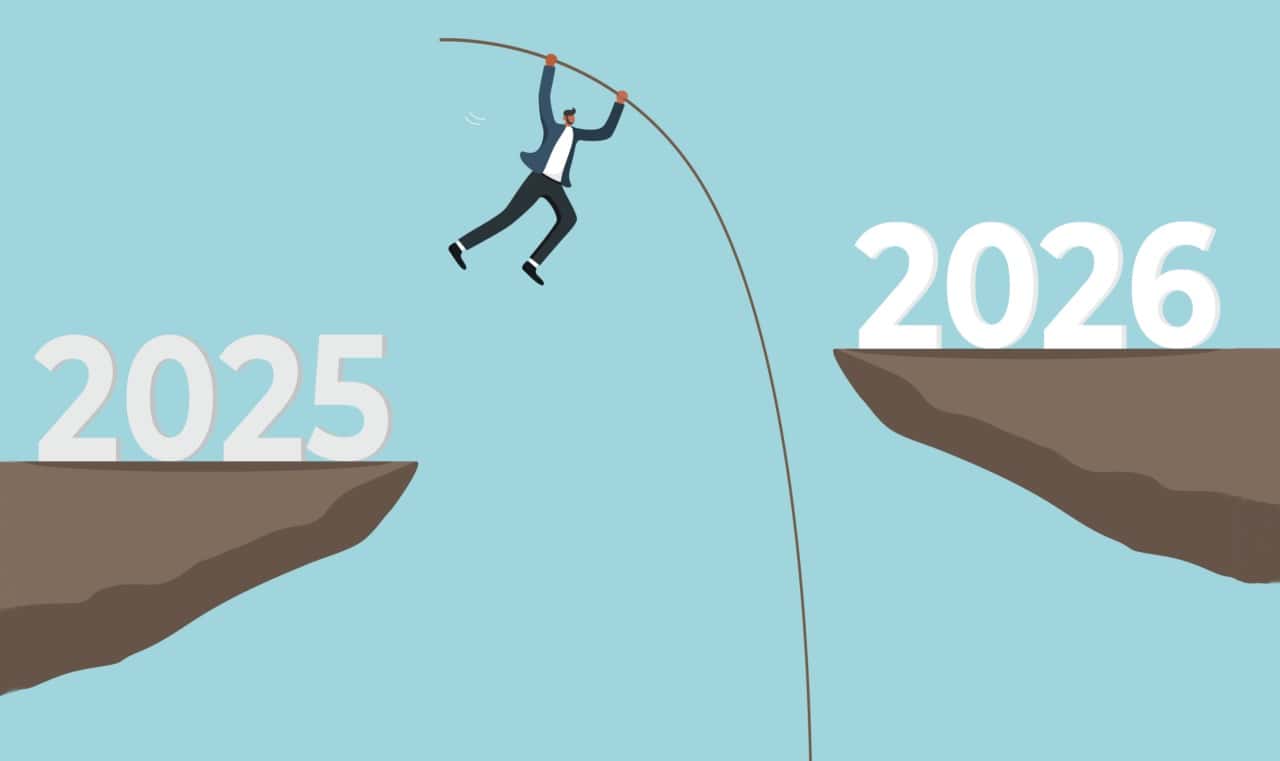


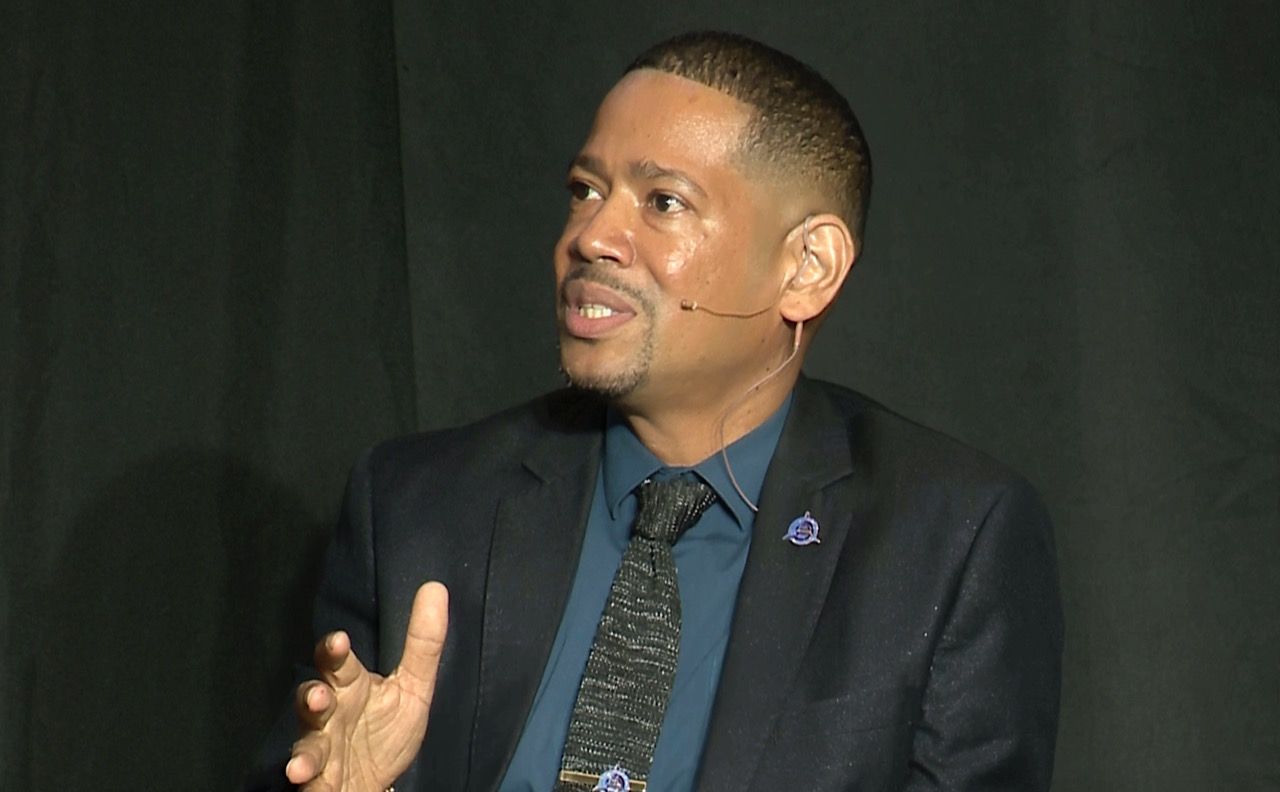

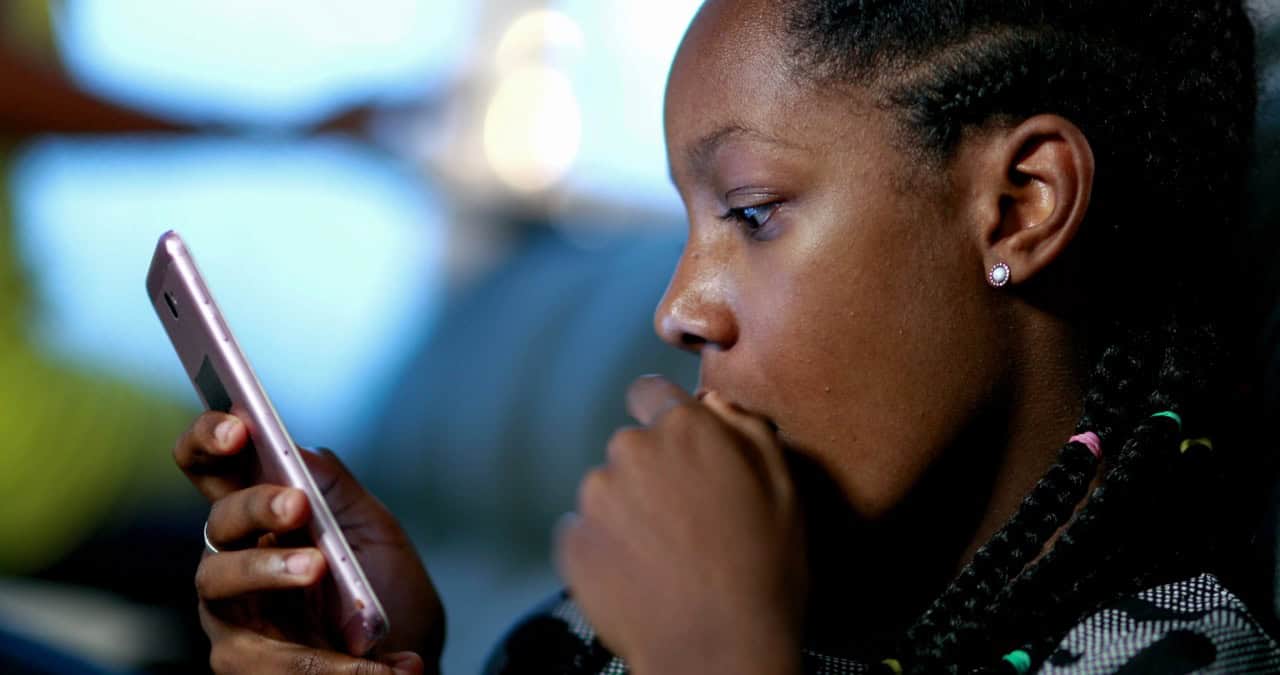
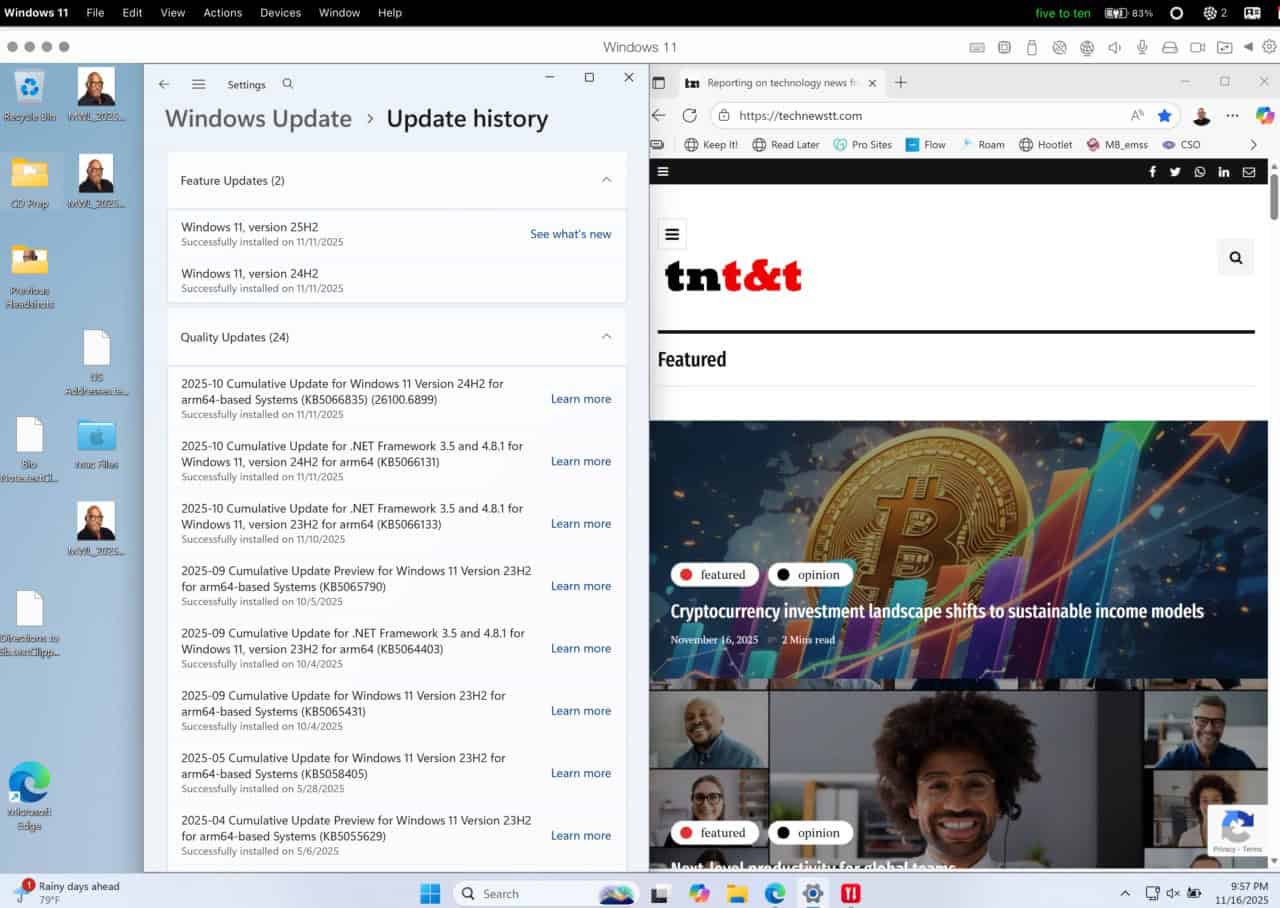




















[…] Trinidad and Tobago – In a research article released on June 17, Ookla, a global connection speed monitor, offered an updated evaluation of the state of broadband connectivity in the Caribbean… more […]